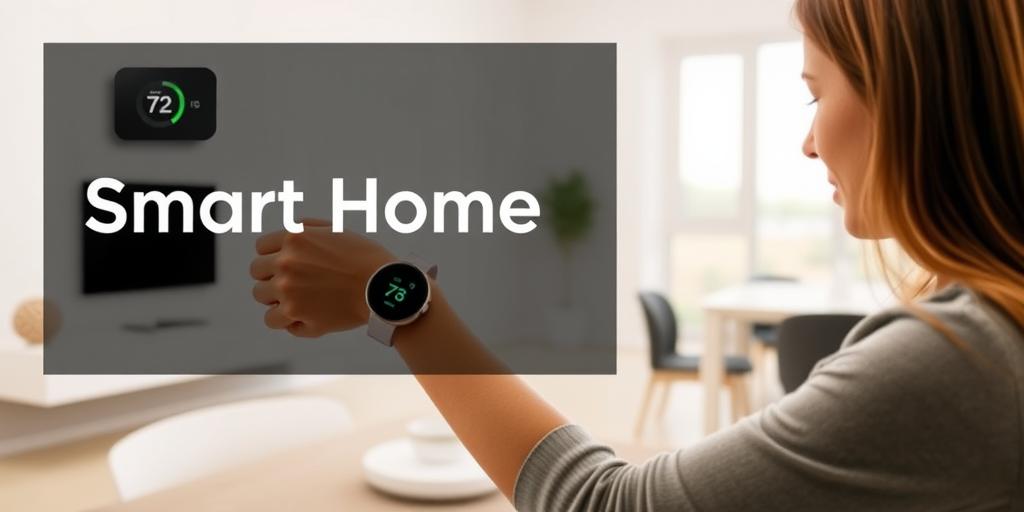How Smart Gadgets Are Changing Our Daily Routines (For Better or Worse)
Smart gadgets have infiltrated nearly every aspect of modern life, from the moment we wake up to the time we go to sleep. These devices, powered by artificial intelligence and interconnected through the Internet of Things (IoT), promise to make our lives easier, more efficient, and more enjoyable. But are they truly delivering on this promise, or are they introducing new challenges and complexities into our daily routines?
The Upsides: Convenience and Efficiency
One of the most significant benefits of smart gadgets is the convenience they offer. Imagine waking up to a smart coffee maker that starts brewing your favorite blend as soon as your smart alarm clock detects you're awake. Or consider the ability to control your home's lighting, temperature, and security systems from your smartphone, no matter where you are.
Smart home devices can automate mundane tasks, freeing up time and energy for more important activities. Smart assistants like Amazon's Alexa and Google Assistant can manage your schedule, play music, answer questions, and even order groceries with simple voice commands. Smart appliances, such as refrigerators and washing machines, can optimize energy consumption and alert you to potential maintenance issues.
Examples of positive impacts:
- Time-saving automation: Smart devices automate repetitive tasks, freeing up time for other activities.
- Increased energy efficiency: Smart thermostats and appliances can optimize energy consumption, reducing utility bills and environmental impact.
- Improved security: Smart security systems offer remote monitoring and control, enhancing home security and peace of mind.
The Downsides: Privacy Concerns and Over-Reliance
Despite their many advantages, smart gadgets also raise some serious concerns. One of the most pressing is the issue of privacy. These devices collect vast amounts of data about our habits, preferences, and behaviors. This data can be vulnerable to hacking and misuse, potentially exposing sensitive personal information.
Another concern is the potential for over-reliance on technology. As we become increasingly dependent on smart gadgets to manage our lives, we may lose essential skills and become less self-sufficient. Moreover, the constant connectivity and notifications from these devices can be distracting and overwhelming, leading to stress and anxiety.
Examples of negative impacts:
- Privacy risks: Smart devices collect personal data that can be vulnerable to hacking and misuse.
- Over-reliance on technology: Dependence on smart gadgets can lead to a loss of essential skills and self-sufficiency.
- Distraction and stress: Constant connectivity and notifications from smart devices can be distracting and overwhelming.
Striking a Balance: Mindful Integration
The key to reaping the benefits of smart gadgets while mitigating their risks lies in mindful integration. This means being selective about the devices we choose to incorporate into our lives and taking steps to protect our privacy and security. It also means being aware of the potential for over-reliance and making a conscious effort to maintain essential skills and unplug from technology when necessary.
Tips for mindful integration:
- Choose devices from reputable brands with strong security features.
- Review privacy settings and limit data collection whenever possible.
- Be mindful of the time spent using smart devices and take breaks to disconnect.
- Maintain essential skills and avoid becoming overly reliant on technology.
The Future of Smart Gadgets
As technology continues to evolve, smart gadgets are likely to become even more sophisticated and integrated into our lives. We can expect to see further advancements in artificial intelligence, voice control, and connectivity, leading to even more convenient and efficient devices. However, it is crucial to address the ethical and societal implications of these technologies to ensure that they are used responsibly and for the benefit of all.
Conclusion
Smart gadgets have the potential to transform our daily routines for the better, offering unprecedented convenience, efficiency, and control. However, they also pose significant challenges, including privacy concerns and the potential for over-reliance. By adopting a mindful approach to integration, we can harness the power of these technologies while mitigating their risks, ensuring that they enhance rather than detract from our quality of life.









